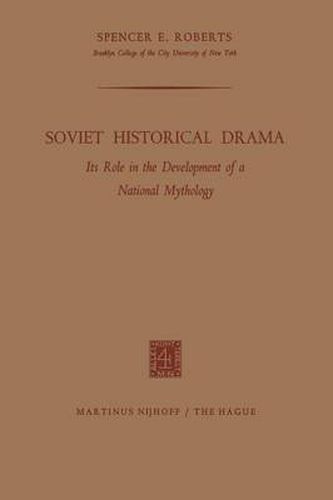Readings Newsletter
Become a Readings Member to make your shopping experience even easier.
Sign in or sign up for free!
You’re not far away from qualifying for FREE standard shipping within Australia
You’ve qualified for FREE standard shipping within Australia
The cart is loading…






This title is printed to order. This book may have been self-published. If so, we cannot guarantee the quality of the content. In the main most books will have gone through the editing process however some may not. We therefore suggest that you be aware of this before ordering this book. If in doubt check either the author or publisher’s details as we are unable to accept any returns unless they are faulty. Please contact us if you have any questions.
The taste for history is the most ariswcratic of all tastes. Ernest Rerum Our century is pre-eminently an historical century … . Even art has now become pre-eminently historical. The historical novel and drama interest each and everyone more at present than do similar works belonging to the realm of pure fiction. ! Although Belinskii was writing in 1841, his statement could equally well apply to the Russia of a century later, when the interest in historical fiction had become, if anything, more intense. In fact, the abundance of Soviet historical novels and plays tempts one to believe Heine, when he said that the people want their history handed to them by the poet, not the historian. The infatuation with history to which Belinskii referred was not, however, indigenous to Russia; it was part of a rage, largely inspired by Waiter Scott, which had swept western Europe in the early nine teenth century, and which soon spread to Russia. Today, Scott’s star has been eclipsed in the West, but it still burns brightly in the Soviet Union. Indeed, it can be said that the West has not only rejected Scott, but, to a considerable extent, the historical novel and playas well. As one writer recently put it: The reading public, brought up on a strict diet of sex and science, prefers to take its history undiluted in the form of unexpurgated memoirs and frank biographies.
$9.00 standard shipping within Australia
FREE standard shipping within Australia for orders over $100.00
Express & International shipping calculated at checkout
This title is printed to order. This book may have been self-published. If so, we cannot guarantee the quality of the content. In the main most books will have gone through the editing process however some may not. We therefore suggest that you be aware of this before ordering this book. If in doubt check either the author or publisher’s details as we are unable to accept any returns unless they are faulty. Please contact us if you have any questions.
The taste for history is the most ariswcratic of all tastes. Ernest Rerum Our century is pre-eminently an historical century … . Even art has now become pre-eminently historical. The historical novel and drama interest each and everyone more at present than do similar works belonging to the realm of pure fiction. ! Although Belinskii was writing in 1841, his statement could equally well apply to the Russia of a century later, when the interest in historical fiction had become, if anything, more intense. In fact, the abundance of Soviet historical novels and plays tempts one to believe Heine, when he said that the people want their history handed to them by the poet, not the historian. The infatuation with history to which Belinskii referred was not, however, indigenous to Russia; it was part of a rage, largely inspired by Waiter Scott, which had swept western Europe in the early nine teenth century, and which soon spread to Russia. Today, Scott’s star has been eclipsed in the West, but it still burns brightly in the Soviet Union. Indeed, it can be said that the West has not only rejected Scott, but, to a considerable extent, the historical novel and playas well. As one writer recently put it: The reading public, brought up on a strict diet of sex and science, prefers to take its history undiluted in the form of unexpurgated memoirs and frank biographies.